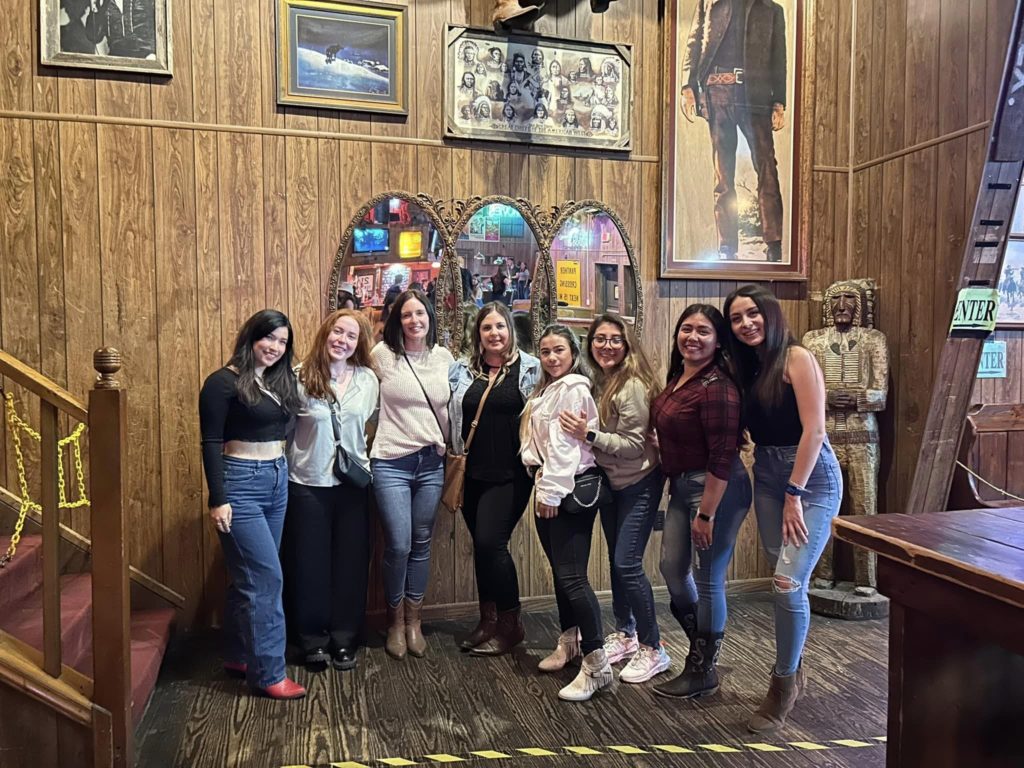Cultural exchange is the root of the Au Pair program. When you decide to become an au pair in the U.S., you’re signing up to take care of children full time and live with an American family, adapting to a new culture and way of life. It’s normal to feel excited and maybe even a little nervous before traveling to the U.S. and beginning your Au Pair program. Here are some things to expect when it comes to the cultural exchange part of being an au pair in the USA.
American Family Home Life
Most American households are busy. It’s common for children to be enrolled in multiple extracurricular activities in addition to a full day of school. The main meal of the day is dinner, not lunch-which can be different from other countries. Dinner is usually served 5:00-8:00pm, although families with young children tend to eat earlier than later. While many families strive to eat this meal together, it may not be possible in many homes due to activity schedules interfering with dinner time.
You may also notice that there are different rules in American homes, and there isn’t a one-size-fits-all playbook for this. For example, in some homes, you may not be allowed to wear shoes indoors, but in others it’s perfectly ok. In some homes, the kids may not be allowed to watch TV during the week, but in others there are very few boundaries when it comes to screen time. Because the U.S. is such a diverse country, there is also a lot of diversity when it comes to rules at home.
American Communication Style
Depending on your culture of origin, you may find Americans to be more direct or less direct than what you’re accustomed to when it comes to communication. It is common for Americans to address issues rather than not. Most Americans do, however, value politeness when expressing their opinions. For example, it is common and acceptable for Americans to make eye contact and directly let you know if something is wrong. You’ll also notice Americans smiling, waving, and saying hello to strangers regularly. Americans tend to be friendly and open to conversation when in public.

Time Management and Punctuality
Americans value their time, so being punctual is very important. There is a common expression in the U.S. that says, “Time is money”, which means Americans view time as a currency and treat it with importance. Being late to work repeatedly is a fireable offense in the U.S. It’s also very common for American families to keep a calendar or have an organizational system to keep track of their busy lives. Your host family may share this system with you as you will play a big part in managing your host children’s time and schedule.
Meeting New People in the U.S.
While it may be customary in your country to kiss someone on the cheek when you first meet them, an American might feel like that is a violation of their personal space, especially from someone they don’t know well! Most Americans will shake hands when they meet someone for the first time, especially in a more professional setting. When meeting new friends, you may notice hugs are acceptable sometimes. If you’re ever unsure how to greet someone new, wait to see what their social cues are and follow along if you feel comfortable doing so.
American Holidays and Celebrations
There are 11 national holidays in the U.S. These are days where schools and many businesses are closed. They are: New Year’s Day, Martin Luther King, Jr. Day, Washington’s Birthday (also known as Presidents’ Day), Memorial Day, Juneteenth National Independence Day, Independence Day, Labor Day, Columbus Day, Veterans Day, Thanksgiving, and Christmas. In addition to these holidays, there are some additional holidays you may hear about and celebrate, especially when taking care of children. Valentine’s Day is celebrated on February 14th. It is typical for young students to gift each classmate a small treat or card on this day. St. Patrick’s Day is celebrated on March 17th, and you may find yourself crafting a leprechaun trap or creating some green crafts to honor this day with your host children.
As is likely the case in your country, Americans also celebrate milestones like birthdays and anniversaries. Kids’ birthdays are often celebrated with a party with friends, either hosted at home or in a location that organizes children’s birthday parties. Gifts have traditionally been expected, although it has become a trend for parents to also request that no gifts be brought to parties sometimes, to minimize clutter and honor the friendships and experience as top priority.

Money & Tipping Practices in the U.S.
Money, like religion and politics, is often a topic that Americans may find rude to discuss unless they are with a group of close friends. Most Americans don’t share information related to money, like their salaries or how much big purchases cost them, like their home for example.
One major difference you’ll likely notice when it comes to money usage in the U.S. is tipping. Americans tip for almost all services: restaurant servers, hair stylists, nail technicians, and massage therapists just to name a few. If you pay by credit or debit card, you will likely see a prompt to tip; however, if you pay with cash, you will need to know what to do. Tips generally range between 15-25% of your service bill. For example, if you go out to eat at a restaurant and your check is for $25, an expected tip might be $5.
Geographical Differences in the U.S.
While we’d love to tell you American culture is a certain way, the truth is it can vary greatly depending on what part of the country you live in. Since the U.S. is composed of over 340 million people and spans over 3.5 million square miles, there is a lot of diversity when it comes to culture within our very own culture. For example, many people believe that New Yorkers talk and walk faster than Americans living in other parts of the country. The U.S. is also made up of big cities like Los Angeles with millions of people and small rural towns with populations of less than 100 people. There are also cultural celebrations and customs celebrated in only certain places in the U.S., like Mardi Gras in New Orleans and the Columbus Day parade in New York City. And then, there are accents! You may or may not notice, but Americans tend to pronounce words differently or even use different slang depending on where they’re from or living. For example, if you live in Texas, you will hear people saying, “Y’all” all the time, but would likely not hear someone in Vermont use that term.

Experiencing a new culture as an au pair is an incredible growth opportunity. It’s important to be openminded and adapt to American culture when you are participating on the Au Pair program, but be sure to remember your own cultural identity as well. Your host family will likely be eager to learn about how you celebrate holidays and birthdays and what’s considered the norm when meeting new people in your country. Fortunately, you and your host family have a year to exchange these cultural ideas with each other when you become an au pair.
Ready to join Au Pair USA’s au pair program? Apply today! For over 35 years, we’ve been welcoming au pairs from all over the world and matching them with carefully screened American host families. Your cultural exchange experience awaits!
